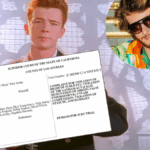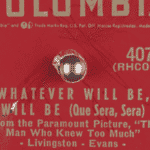In a new motion to dismiss, Sirius argues that the Copyright Act preempts right of publicity claims brought by longtime “Howard Stern Show” personality “Stuttering John” Melendez.
Even casual listeners of “The Howard Stern Show” will remember “Stuttering John” Melendez, a former Stern show staffer whose schtick consisted of asking ridiculous “gotcha” questions during interviews with celebrities and politicians. You know, hard-hitting stuff like “Who are you and what makes you famous?”
Melendez appeared on the Stern show from 1988 to 2004, at which point he was hired by Jay Leno as the announcer for “The Tonight Show”—a move that Stern and his diehard fans saw as a major stab in the back.
In 2006, Howard Stern left terrestrial radio for satellite, joining Sirius (now SiriusXM) in a huge financial deal that’s only become bigger with each of Stern’s successive contract renewals. Meanwhile, Melendez’ career has stalled a bit since his Leno days, and while he currently hosts a podcast, it’s safe to say that Melendez doesn’t enjoy the same exposure he once did.
The Lawsuit
In August 2020, Melendez filed a lawsuit against Sirius XM Radio Inc., alleging that his right of publicity was violated by the continued broadcast on SiriusXM of an estimated 13,000 hours of recorded Stern show footage that features his “identity, likeness, name, image and voice.”
In a new motion to dismiss filed Friday (read here), Sirius fires back, arguing that the Copyright Act preempts any right of publicity claims based on its use of recorded footage of Melendez’ voice or likeness.
Copyright vs. the Right of Publicity
I’ve written a bit about copyright preemption in prior posts, although not yet in the context of the right of publicity. As a refresher, right of publicity laws protect against the unpermitted use of a person’s name, voice, likeness or other identity attributes. The prototypical right of publicity violation occurs when a celebrity’s image is used in a nonconsensual advertisement or similar commercial use. These sort of lawsuits aren’t preempted by copyright law, because the crux of the action isn’t the use of any particular image or sound. Instead, the right of publicity seeks to protect intangible aspects of the plaintiff’s very identity or persona.
But things can get a bit tricky when a celebrity attempts to use the right of publicity to prevent the exploitation of a copyrighted work in which his identity is fixed. At that point, the celebrity’s interest in controlling the exploitation of his identity collides head first into the copyright owner’s interest in controlling the exploitation of its copyrighted work. When these sorts of collisions occur, federal copyright law takes precedence over conflicting state law.
Sirius XM’s Motion to Dismiss
In its new motion to dismiss, Sirius XM argues that Melendez’ right of publicity claim is preempted because it’s based entirely on Sirius’ exploitation of copyrighted radio shows and video clips containing his voice and likeness, as opposed to any independent commercial use of his identity. Sirius relies extensively on the Ninth Circuit’s seminal opinion in Laws v. Sony Music Entertainment.
Laws involved a clip from a musical recording licensed by Jennifer Lopez and L.L. Cool J for a new song called “All I Have.” The plaintiff, whose voice was featured on the original clip, sued the singers’ record label, alleging that the use of the clip misappropriated her voice in violation of the right of publicity. The Ninth Circuit disagreed, holding that “federal copyright law preempts a claim alleging misappropriation of one’s voice when the entirety of the allegedly misappropriated vocal performance is contained within a copyrighted medium.”
In a letter to Southern District of New York judge Paul Crotty, Melendez’ lawyers offered a preview of their response to Sirius’ preemption argument. They argue that the fact that Melendez’ voice is embodied in fixed audio and video recordings is “irrelevant,” because their theory of the case is that Sirius sought to benefit commercially by utilizing his “instantly recognizable noncopyrightable personal attributes.”
My Take
The problem I predict Melendez is going to have is that while his “personal attributes” may not be subject to copyright protection, the recordings containing his voice fall squarely within the subject matter of copyright, and it’s those very works that he’s seeking to prevent Sirius from exploiting. In other words, this isn’t a case like No Doubt v. Activision Publishing, in which the band complained when its members’ personas were used as the basis for new video game avatars. Even there, the court noted that if No Doubt “was suing on the basis of Defendant’s misuse of Plaintiff’s songs or videotaped musical performance, its claims would be preempted by the Copyright Act.”
There’s also the issue of consent. Melendez last appeared on the “Howard Stern Show” fifteen years ago, and his performances (as embodied in thousands of hours of audio and video clips) have been exploited constantly on Sirius for nearly as long. Melendez never objected to this use. To the contrary, as Sirius points out, Melendez used his prior fame as a fixture on the Stern show as a launching pad for the rest of his career. (Sirius’ lawyers actually put it a tad less charitably, arguing that “Mr. Melendez’s entire career since leaving the HS Show has been trading on whatever fleeting moments of public exposure he had as an occasional cast member” of the show.) Sirius dismisses Melendez’s claims as nothing more than a “publicity stunt” designed to draw attention to him at a time when Sirius and Stern are negotiating a contract extension.
UPDATE—On December 8, the parties announced that they had entered into a new contract extension that will keep Howard Stern on Sirius through the end of 2025. In addition, Stern’s archive of audio and video—presumably including the Melendez clips— will continue to be licensed to SiriusXM for another seven years.
Bottom line is that I think the court will find that Melendez’ right of publicity claims are in fact preempted, and Sirius XM’s motion to dismiss will be granted. That said, the lawsuit did prompt me to write a post about Melendez, and his lawsuit has generated a lot of press. If you believe that any publicity is good publicity, perhaps he’s doing just fine.
NEW UPDATE—June 24, 2021. A judge in the SDNY has thrown out the right of publicity lawsuit filed by former Howard Stern sidekick “Stuttering John” Melendez against Sirius XM. As expected, the judge found that the claims were preempted by the Copyright Act. Read all about it here.
As always, let me know what you think. A copy of the Sirius XM motion to dismiss is below.
View Fullscreen






3 comments
Interesting topic. Thanks for the analysis, Aaron.
Thanks for reading Steve!
I agree wholeheartedly. I don’t see how he has any case here for all the reasons you mentioned.